VU-Pon AI Lab – AI Pizza Night
During this very first AI Pizza Night on April 25th in Move Amsterdam, the host Jesper Slik took us on a journey into the fascinating world of AI. Alongside other interested colleagues, we enjoyed engaging presentations and delicious pizzas. Missed the Pizza Night or want to refresh your memory? Read a summary of all presentations below.
Laith Wehbi, AI specialist at Pon and a PhD candidate at VU, presented an overview of the VU-Pon AI Lab and its objectives. The VU-Pon AI lab (comprised of Jesper, Yasmin, Mathijs and Laith) is a collaboration between Pon and the Vrije Universiteit. The lab aims to leverage AI, generate and optimize insights and processes, and empower Pon business and employees with accessible intelligence. Together with the VU, it also strives to contribute to the advancement of analytics and optimization in AI research.
Laith highlighted the projects undertaken by the PhD candidates within the lab. Yasmin Roshandel focuses on production planning, aiming to optimize plans to adapt to the dynamic nature of its corresponding industry. Mathijs Pellemans delves into vessel prediction, aiming to accurately capture and forecast vessel lead times. Laith Wehbi‘s own research revolves around sustainable mobility, seeking ways to design urban distribution networks with environmental awareness.
These projects represent the first-year tracks of the Pon-VU AI Lab, with future research tracks to be defined collaboratively with Pon OpCo’s in the coming year. Laith outlined three key considerations when proposing potential projects for the AI Lab.
- Feasibility plays a role in determining if a project can be accomplished within a 6–12 months timeframe.
- Desirability of the solution by customers or the business is crucial.
- Financial viability is essential, ensuring that the development costs can be covered by the business and that customers are willing to pay for the solution.

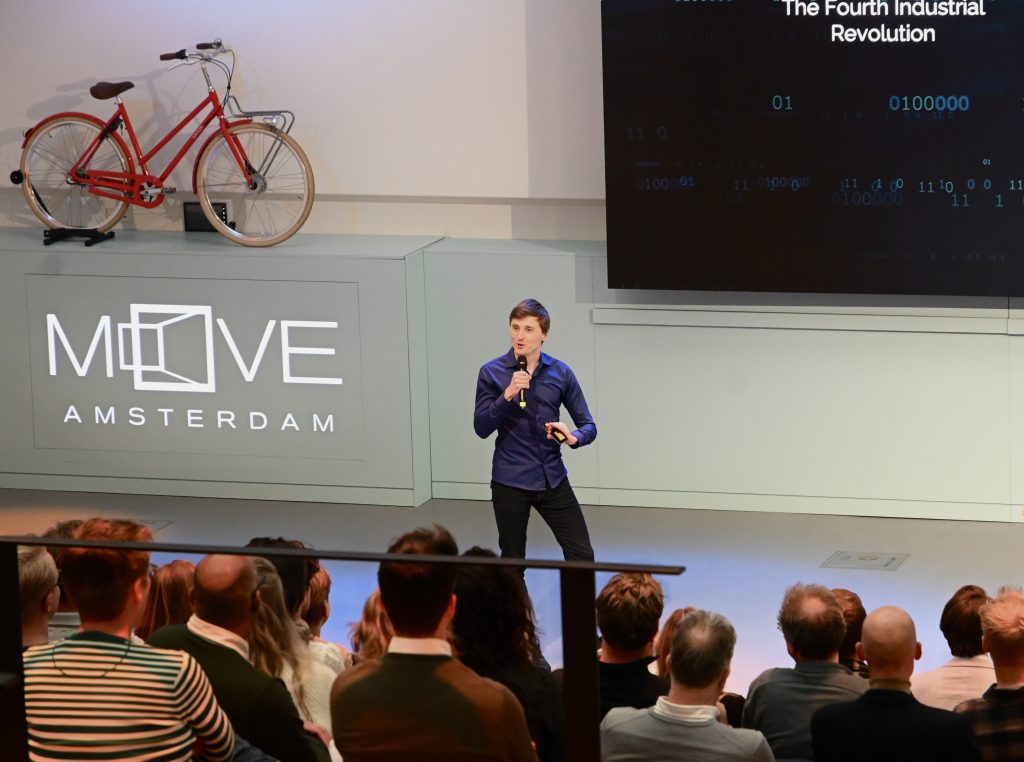
Sandjai Bhulai, Lokke Moerel and Mathijs Pellemans also gave mind-stimulating presentations about both the amazing and challenging aspects of AI.
Sandjai Bhulai, full professor of Business Analytics at the Vrije Universiteit Amsterdam, took us on an engaging journey through time with his captivating talk titled “Artificial Intelligence – The Fourth Industrial Revolution.” From previous revolutions during the era of steam-powered machinery in 1784 to the advent of cyber-physical systems and artificial intelligence in 2015. He highlighted that the AI revolution is driven by Large Language Models (LLMs) and encompasses various areas of development, including computer vision, speech recognition, speech synthesis, music generation, image generation, and robotics. Sandjai emphasized the rapid adoption of AI by the public, exemplifying how it took ChatGPT only a few days to reach a billion users, compared to Netflix and Instagram, which took much longer. Furthermore, Sandjai explained that the performance of LLMs significantly improves when trained with vast amounts of data. The ability of LLM’s are emergent, since the capability of the models drastically improve by scaling up (100B examples). His insightful presentation left us inspired by the transformative potential of AI in shaping our future.


Lokke Moerel, New Technologies & Cyber specialist at Morrison & Foerster LLP, delivered an enlightening presentation on Responsible AI. She stressed the significance of accurate and unbiased data for making precise predictions, emphasizing that input determines output. Lokke highlighted the need for human oversight in decision-making, as AI models may not account for exceptions or other creative variations. She cautioned against assuming causation based solely on correlations found in datasets, underscoring the importance of understanding the complete story. She emphasized the risk and legal perspectives, stating that organizations must be accountable for algorithmic decision-making and mitigate potential harms. She underscored the need for organizations to comply with data protection rules, highlighting the principles of algorithmic accountability and privacy by design. Ethical considerations included human-centric deployment, human control and accountability, transparency in decision-making, and the right to review and appeal automated decisions. The GDPR was referenced as a framework for ensuring fairness, transparency, and accountability in AI systems. Lokke advocated for upskilling and reskilling across professions to manage the AI transition effectively.
Mathijs Pellemans, AI specialist at Pon and a PhD candidate at VU, talked about Generative AI by cutting through the hype and exploring its real impact on Pon. He illustrated the layers of AI, distinguishing artificial intelligence as the outer shell, machine learning as the middle shell, and deep learning as the innermost layer utilizing complex algorithms and deep neural networks. Generative models, such as ChatGPT, are within this inner layer. Mathijs highlighted the significance of generative AI in creating new digital content across text, images, audio, video, and code. He emphasized that generative AI will affect every department in the organization, from IT and HR to customer service, finance, and sales and marketing. The practical applications of generative AI include enhancing content quality and efficiency, personalizing experiences, improving productivity, revolutionizing customer service, streamlining operations, and fostering innovative product design. By embracing generative AI, Pon can leverage its capabilities to drive growth, efficiency, and innovation throughout the organization. Today, AI is a value addition. Tomorrow, it’ll be a norm.

If you want to remember one thing of the AI Pizza Night, please let it be these AI Golden Rules to use AI tools safely and responsibly. Here is a guide for Pon employees:
ALWAYS…
- Be critical on the quality and sensitivity of the data you put in.
If you put garbage in, you get garbage out. - Verify the outcome and adjust with a human touch when necessary.
Be aware of any biases or limitations that may be presented in the output. - Use AI for inspiration and supporting purposes.
Not for sensitive issues or ethical dilemmas such as recruitment. AI is often not neutral. - Research the AI tool that you want to use.
Make sure that you understand how the tool processes the data, for example by reading the general conditions. Safety, honesty and transparency are crucial factors for using AI responsibly and protecting our data. - Contact the Security & Privacy Office.
Email [email protected] if your project does not fit these Golden Rules or if you have doubts. Together we can research the possibilities.
NEVER…
- Enter personal data or company confidential information without approval of the Security & Privacy Office. For example: pictures of people, names, financial information, license plates, location data. Always remember that once the data is put into an external AI, we lose control of it.
- Connect AI tools to Pon systems or documents without approval of the Security & Privacy Office.
If we blindly make this connection, we risk giving the AI tool access to restricted Pon data. - Use AI for automated decision making without human intervention.
Always consider what decisions are made, based on what data and how this can be interpreted.

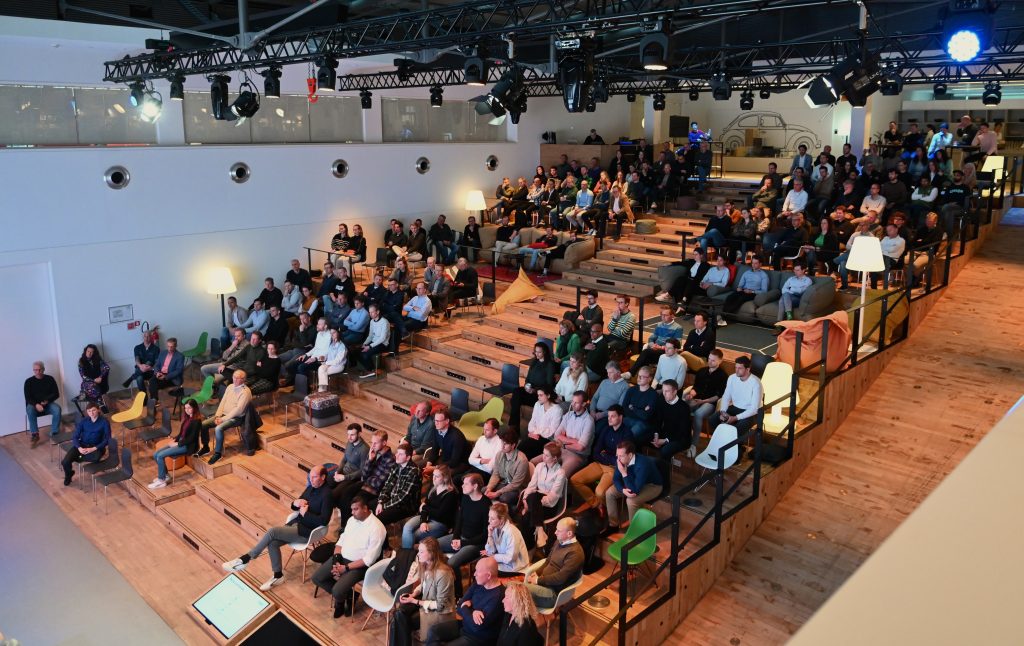
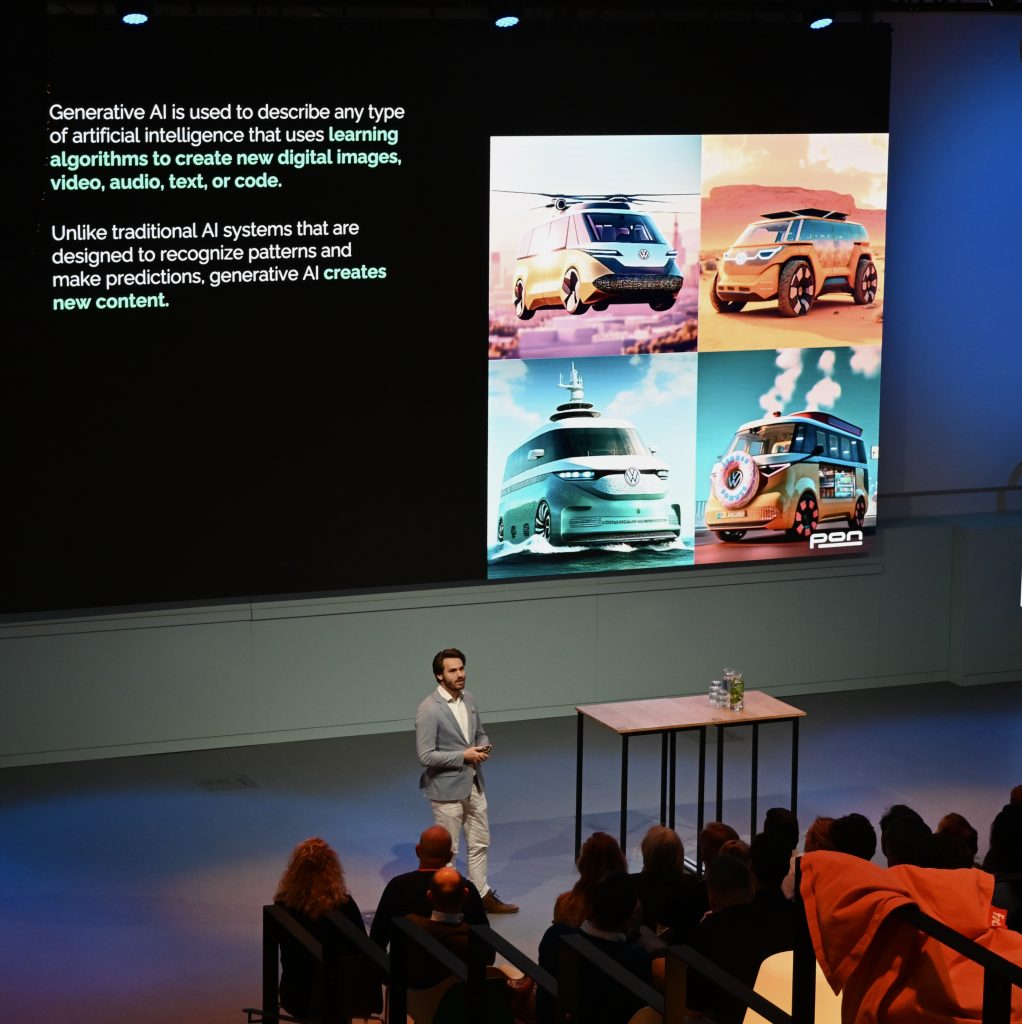
Want to learn more about potential collaborations with the VU-Pon AI Lab or join the next AI Lab event? Send Jesper an e-mail on [email protected].

Jesper Slik
Senior AI Specialist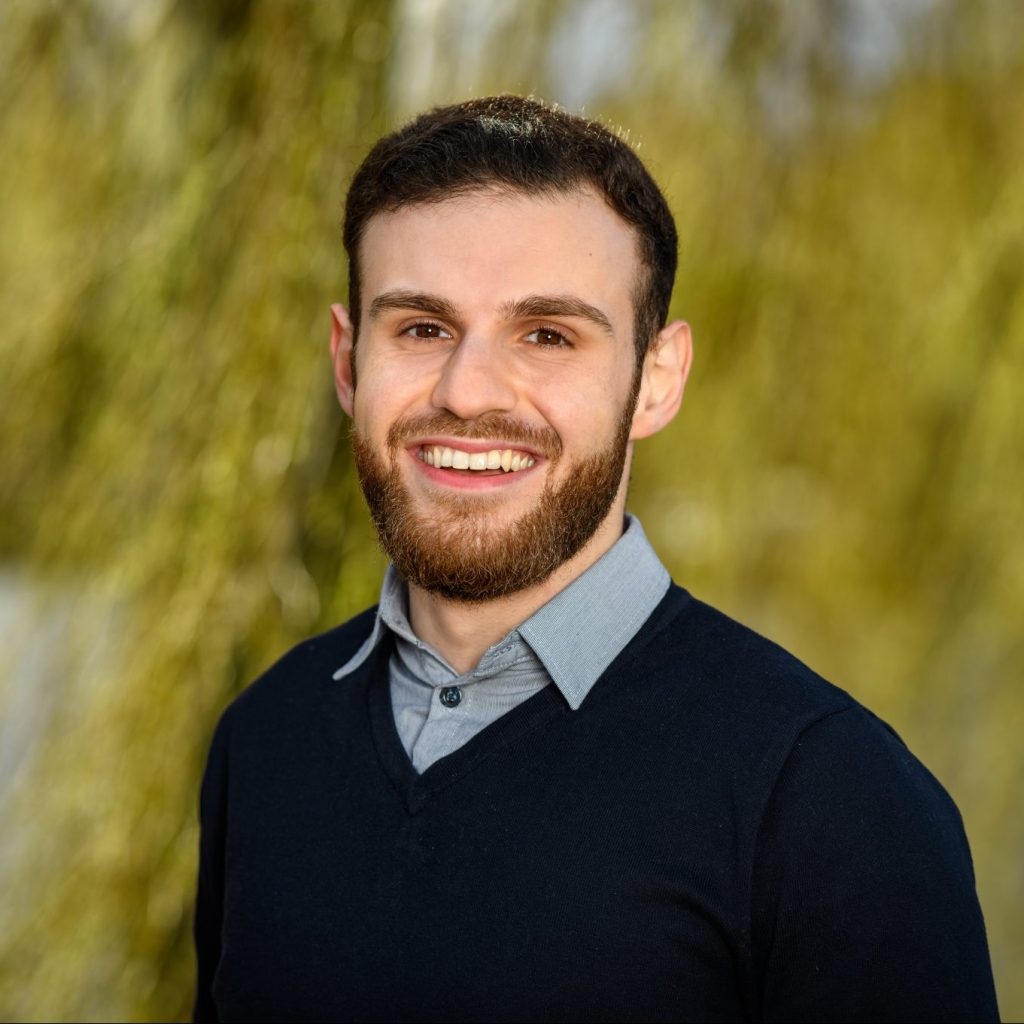
Laith Wehbi
PhD Candidate Sustainable logistics & AI Specialist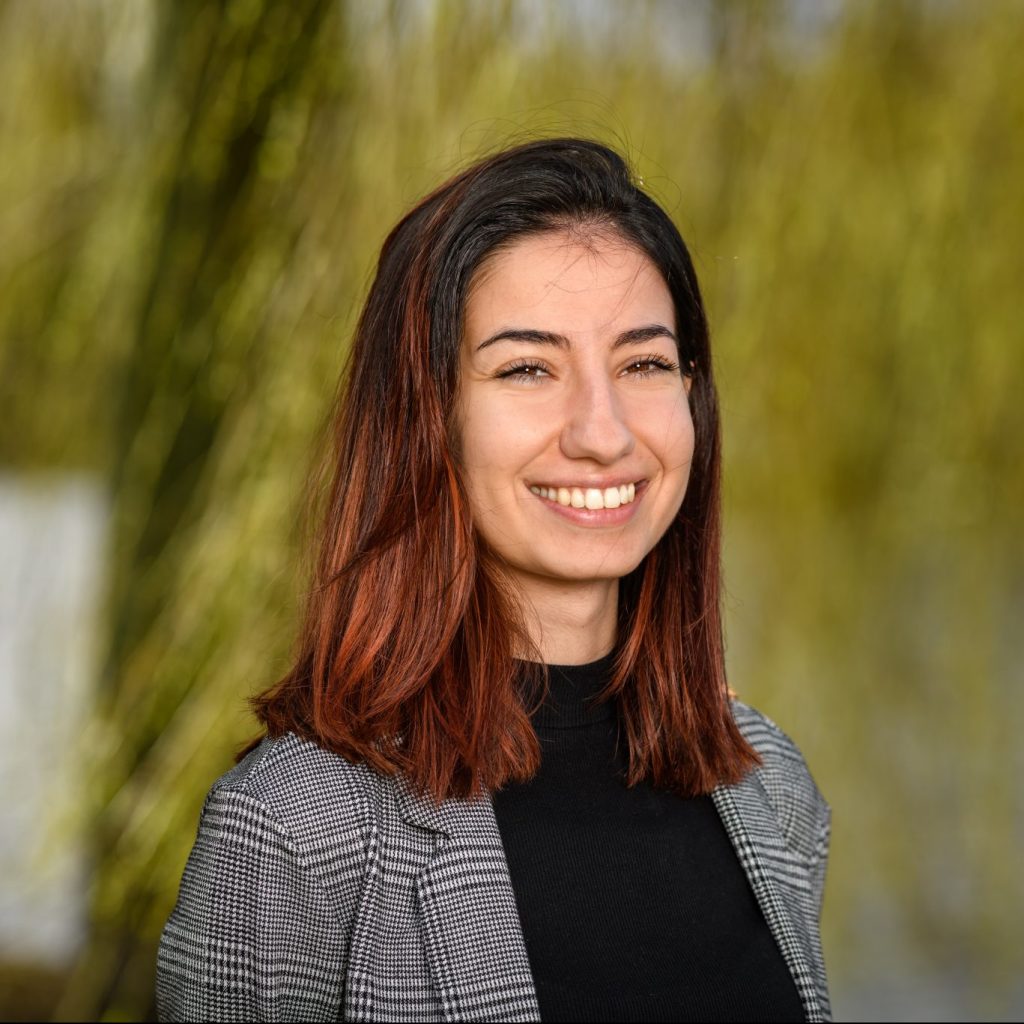
Yasmin Roshandel
PhD Candidate Operations Research & AI Specialist
Mathijs Pellemans
PhD Candidate Deep Learning & AI Specialist
Charlotte Koning
Community Lead

